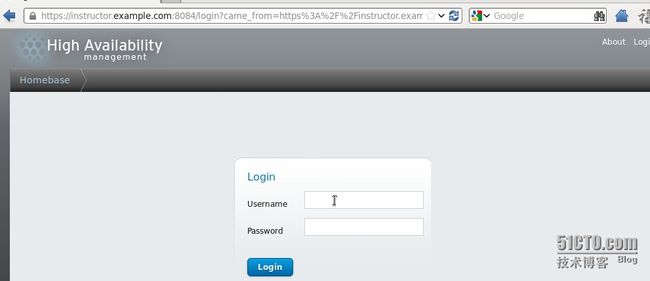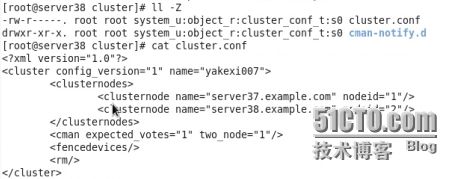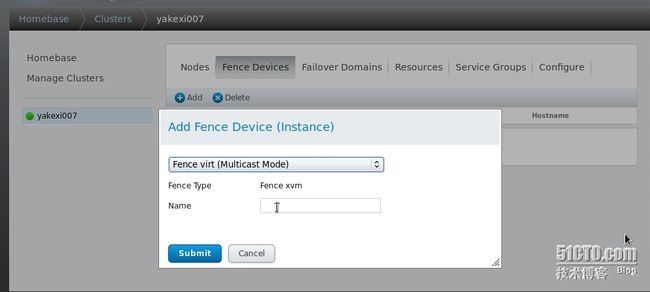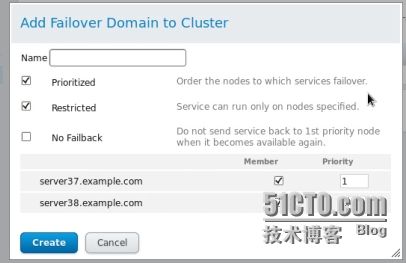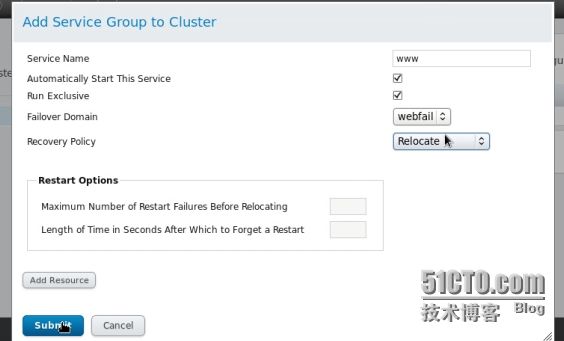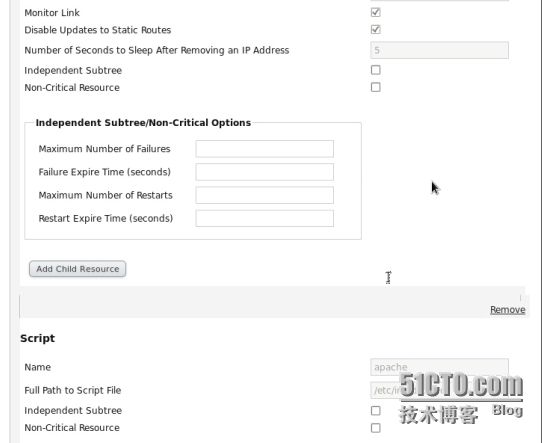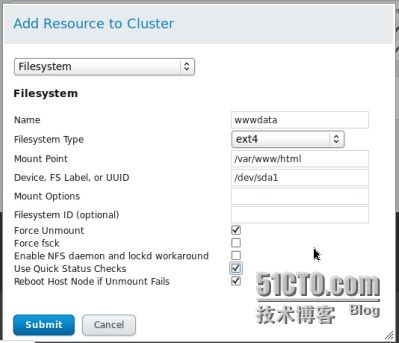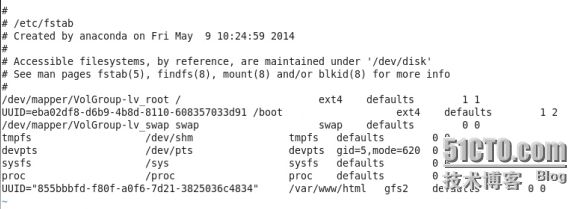- 使用aspose-cells进行excel转PDF 并且Linux中文方框解决方案
戴子
excelpdfjava
com.asposeaspose-cells21.11Aspose.TotalforJavaAspose.WordsforJavaEnterprise209912312099123123dcc79f-44ec-4a23-be3a-03c1632404e92sNLLKGMUdF0r8O1kKilWAGdgfs2BvJb/2Xp8p5iuDVfZXmhppo+d0Ran1P9TKdjV4ABwAgKX
- 每天了解一个不同的证书类型之红帽篇
咕噜Yuki0609
linux
红帽是一家专注于开源技术的公司,其业务涵盖了Linux系统的发行、云计算、容器化应用、人工智能等,并且在全球市场上有广泛的用户群体。同时,红帽也在不断加强其在开源技术领域的研发,不断推出新的产品和服务,以满足客户的需求。因此,红帽公司在开源技术领域中处于领先地位,并且在市场中有着良好的发展前景。红帽证书分为三个级别:红帽认证系统管理员(RHCSA)是最基础的认证级别,要求考生掌握Linux系统的安
- Linux基础2
Lfei5120
linux
文章目录RHCSA课程回顾注:自动化的前提是标准化、规范化。1.网卡命令的步骤:2.ifconfig命令操作3.IP命令及操作4.ss命令操作5.网卡的配置6.硬盘命令7.fdisk命令及操作8.格式化9挂载10.永久挂载11.计划任务12.日志服务与管理13.httpd编译安装apr-util安装http安装http安装RHCSA课程回顾注:自动化的前提是标准化、规范化。网卡回归传统命名一般是:
- firewall 常用命令
wowocpp
web_htmllinux
firewall常用命令参考https://www.cnblogs.com/tanll/p/17752574.htmlfirewalld过滤出接口流量https://www.bilibili.com/read/cv21744921/RHCSA系列(十一):使用firewalld和iptables来控制网络流量https://linux.cn/article-6315-1.htmlfirewalld
- RHCSA题解(二) - 配置SELinux的模式
MA木易YA
模式SELinux有三种工作模式,分别是:1.enforcing:强制模式。违反SELinux规则的行为将被阻止并记录到日志中。2.permissive:宽容模式。违反SELinux规则的行为只会记录到日志中。一般为调试用。3.disabled:关闭SELinux。设定1.SELinux工作模式可以在/etc/selinux/config中设定(永久设定)。2.disabled与其他模式间的相互切
- 第0章 Linux 基础入门
璀云霄
Linuxlinux运维
第0章Linux基础入门RHCSARedHatCertifiedSystemAdministrator红帽认证系统管理员。什么是计算机计算机的组成:控制器运算器存储器输出设备输入设备计算机只能识别0和1,也就是二进制数。为什么要学习LinuxLinux因其高效率、易于裁剪、应用广泛等优势,成为了当今中高端服务器的首选操作系统。在服务器领域中发展良好成本低,安全性高一般用于云计算,大数据领域Linu
- RHCSA 红帽学习基础一(监控和管理Linux进程)
是阿杜呀
linuxlinux运维
RHCA学习过程一我们都知道学习红帽都需要一种精神,那就是不断练习,只有自己操作熟练了,才变得游刃有余。反正我总结的就是这么一点点吧,我不知道大家在开始学习红帽的时候是一种什么样的想法呢,当然有的时候基础也是很关键的,学习好红帽linux更多的是为以后的网络安全做好基础,基础对于一个学习技术的人来讲还是很重要的,不管怎样样都是必不可少的,总体来讲,多动手。只有自己在动手中遇到很多的不知道怎么解决的
- Linux基础 2.0
liu zhi cheng
云计算网络linux
1.使用timedatectl查看时间状态,并修改时区:[root@rhcsatest]#timedatectl[root@rhcsatest]#timedatectlset-timezone"America/New_York"2.使用wget命令下载一个视频:[root@rhcsa~]#wgethttps://video.pearvideo.com/mp4/adshort/20220317/co
- Linux简单操作
liu zhi cheng
云计算网络linux
1.创建目录:[root@rhcsa~]#mkdirtest[root@rhcsa~]#cdtest[root@rhcsatest]#touchtext1.txttext2.txt[root@rhcsatest]#vimtext1.txt编辑模式:1WelcometomyLinux.2Youarethebest.3Thisismyfirstfiletocreateonlinux末行模式::setn
- Linux基础
liu zhi cheng
云计算网络
1.命令:echo[root@rhcsa~]#echo$PS1[\u@\h\W]\$[root@rhcsa~]#echo$PS2>date输出:2022/03/20HH:MM:SS星期:Sat,年份22,小时:PM[root@rhcsa~]#date"+%Y-%m-%d%H:%M:%S%a%y%p"2022-03-2022:07:49Sun22PM2.符号的意义:[]:括起来的作用@:分隔的作用#
- 红帽认证有啥用?初级红帽认证证书值得考吗?
GLAB-Mary
RHCElinuxRHCSARHCA红帽认证
大家好,这里是G-LABIT实验室。今天我们来了解一下Linux红帽认证。红帽认证已成为企业和个人竞相追逐的热门资质。红帽认证认可度究竟如何?红帽RHCSA认证含金量又有多高?下面G-LAB将为你一一解答。1、红帽认证认可度怎么样?事实上,红帽认证认可度在全球范围内都得到了广泛的认可和重视。许多企业和组织都将红帽认证作为招聘和选拔人才的重要标准之一。持有红帽认证的个人往往能够获得更好的职业机会和更
- RHCSA LINUX 笔记
Vovve
linux运维服务器
第一个重要技能就是修改密码:以下是步骤:(第一种方法)#第一步重启系统,然后按键盘的下键将白色条放到第二行上输入e#第二步在linux开头那一行尾部添加rd.break,然后使用ctrl+x继续后面#第三步输入输入mount查看设备挂载信息(主要看/sysroot目录挂载权限)接着输入mount-oremount,rw/sysroot目录重新挂载已经挂载的设备,并以其他的权限挂载,这里我们需要rw
- RHCSA LINUX笔记2
Vovve
linux笔记运维
mancpcp选项源文件目标文件cp-a+为复制文件+复制去位置复制目录的时候属性等复制过去文件的时间等不变cp-r复制目录及所有的子目录等文件的时间被更新为复制时间cp-p可以把一个文件或者目录复制到指定的位置,并且将原始文件的属性保留(包括所有权、时间戳、权限等)mp选项源文件目标文件mv+选项+源文件目标文件ctrl的快捷方式:ctrl+a跳到命令行行首ctrl+e跳到命令行行尾ctrl+d
- RHCSA的练习过程
予安不会写博客
linux服务器bash
1ipcongfig2ifconfig3ls4ps-ef5iconfig6ifconfig7dsa8cat/etc/redhat-release9/10/11//12cd13cd/14./15ls16madiraaa17mkdiraaa18ls19rmdiraaa20ls21mkdiraaabbbccc22ls23rmdiraaabbbccc24mkdir-p/aaa/bbb/ccc25mkdir
- 【RHCSA服务搭建实验】之apache
对熬夜say no
apache
虚拟web主机类型一、基于端口1.vim/etc/httpd/conf.d/vhost2.conf----—改变http服务默认访问路径allowoverridenone表示不允许覆盖其他配置requireallgranted表示允许所有请求所有ip可以通过80端口访问documentroot/testweb1指定了客户端请求网页时服务器返回文件的路径servername192.168.85.12
- 美人集 -01克里斯蒂娜·里奇(Christina Ricci)
橙子鹿啦啦
《断头谷》(1999)上传中,请稍候...上传中,请稍候...上传中,请稍候...上传中,请稍候...上传中,请稍候...上传中,请稍候...图片发自App上传中,请稍候...上传中,请稍候...图片发自App图片发自App图片发自App图片发自App
- RHCSA第一天;环境搭建,访问命令行,简单命令
Puddin493
RHCSA基础ssh
1.部署Linux环境:安装Vmware之后,在windows会产生两个虚拟网卡:vmnet1,vmnet8部署Linux:需要有网卡,必须要知道root用户的密码,和你普通的用户的用户名和密码创建虚拟机:路径位置可选择大盘不能超过所使用计算机的处理器核数按照笔记本内存减2比如16-2=14g然后打开CD/DVD设置镜像路径设置完成后可以开启虚拟机(在使用虚拟机的工程中按Ctrl和alt可以召唤鼠
- RHCSA题解(一) - 重置密码
MA木易YA
1.进入编辑模式启动RHEL7系统,并在GRUB2启动选项时,按下键盘上的e键进入编辑模式。2.更改配置后重启系统光标定位到以linux16开头的这一行,按下键盘上的End键,直接跳至这一行的末尾,再按下空格键,输入rd.break(如果是虚拟机上操作,则输入rd.breakconsole=tty0),再执行Ctrl+X重启系统。3.重新挂载分区并赋予读写权限直接mount的话会发现根为/sysr
- 红帽认证 | 红帽认证分几级?红帽认证的证书含金量高吗?
HCIE考证研究所
网络智能路由器运维网络工程师红帽认证RHCERHCA
红帽认证是IT领域中备受关注的一种认证,它由红帽公司推出,旨在证明持证者在Linux操作系统方面的技能和知识。那么,红帽认证分几级?红帽认证的证书含金量高吗?下面将详细介绍红帽认证的级别和证书含金量。01红帽认证分几级?★红帽认证系统管理员(RHCSA):是红帽的初级认证,它证明你完全可以对Linux系统进行基础管理和维护工作。如:创建用户、管理磁盘、文件权限等。★红帽认证工程师(RHCE):是红
- 【菜鸡带你识证书】之红帽:RHCSA、RHCE
云南菜鸡
【菜鸡带你识证书】职场和发展运维
证书特点:费用适中、难度较低、用途较广、认可度较高。综合评定:性价比较高!证书名称:RHCSA/RHCE(红帽认证管理员、红帽认证工程师)证书级别:初级/中级证书有效期:无限期※如需要考RHCA,则需在RHCE通过之日起两年内完成,详细RHCA请看“【菜鸡带你识证书】之红帽:RHCA系统架构师”培训需求:强制培训,否则无法参加考试。发证机构:RedHat(红帽公司)考试名称:红帽linux认证考试
- rhcsa第三次作业
麻辣头马头
RHCSA/Linux基础linux服务器
1、将整个/etc目录下的文件全部打包并用gzip压缩成/back/etcback.tar.gz[root@xiaoyun/]#tar-czf/back/etcback.tar.gz/etc/*2、查看/back/etcback.tar.gz文件中有哪些文件?[root@xiaoyun~]#tar-tf/back/etcback.tar.gz3、将/back/etcback.tar.gz解压到/t
- Java工具类:获取当前方法上一级、全部的调用者
天黑请闭眼
Java工具类java
目录一、场景二、工具类三、测试类四、测试结果一、场景在一些多线程的代码逻辑中,一个方法可能会被很多不同的线程所调用,如果没办法知道该方法具体的调用者,在通过日志排查问题时,日志会非常难以分析解决:可以在打印日志时,将方法的上一级调用者打印出来二、工具类/***堆栈相关工具类**@authorhcs*@date2023/8/2114:05*/publicclassStackTraceUtils{/*
- 红帽认证-RHCSA
yyyzf
网络服务器运维
目录RHCSA认证考的是:ServerA题目:一、按要求配置网络二、配置系统使用默认存储库三、调试SELinux四、创建用户账户五、配置cron作业六、创建协作目录七、配置NTP八、配置autofs九、配置/var/tmp/fstab权限十、配置用户账户十一、查找文件十二、查找字符串十三、创建归档十四、容器创建十五、配置容器使其自启动随机题:一、容器持久化存储三、设置sudoer权限四、配置新用户
- linux初级学习
帝落若烟
linux运维Redhat
(420条消息)红帽认证-RHCSA_rhcsa红帽认证_yyyzf的博客-CSDN博客OS:用户和机器的接口,UI:CMD,GUIshell:通用格式命令选项(调控功能)参数(操作对象)参数省略参数对象一般使用当前目录作为参数对象绝对路径:从/根开始找到文件的流程相对路径:从当前目录找到文件的流程目录类命令:lscdpwdmkdirlnpwd:输出当前工作目录cd:切换工作目录~当前用户的家目录
- Linux基本命令(纯干货)
小菜基-123
Linuxlinux服务器前端
RHCSA命令知识点一.访问命令行1.poweroff#关机2.reboot#重启3.cat#查看文件的内容例:cat/etc/os-release4.ls#显示出文件夹中的文件补充:ls-l#查看具体信息(以长格式输出)-A显示隐藏文件ll-a#以长格式查看文件夹中的所有信息ls-lh#-h表示显示文件的大小5.head#查看文件中的头部信息(默认十行)例如:head-5+文件名#显示文件头部5
- RHCSA---基本命令使用
北 染 星 辰
RHCSA运维linux
文章目录前言一、pandas是什么?二、使用步骤1.引入库2.读入数据总结前言Linux中终端中的很多操作都是通过命令行实现的,最常用的输入命令的方法有以下两种。(1).打开自带的终端,类似于Windows中的CMD(2).ssh远程连接,关于SSH连接在RHCE专栏中有纤细介绍一.shell介绍Linux的操作界面常称为ShellShell是操作系统提供给用户使用的界面(图形、字符),它提供了用
- RHCSA学习笔记(RHEL8) - Part1.RH124
这啥命啊
运维linux
ChapterⅠ入门-Linux开源系统,命令行,模块化(软件包的形势)-Windows闭源Linux是类UNIX系统,mac系统也是类UNIX系统,所以二者的图形化界面比较相似开源许可证:公共版权;宽松许可证redhat是一家开源服务提供商,其收费范围如下:开case处理故障补丁更新知识库培训RHEL(RedHatEnterpriseLinux)FedoraRHELCentOSFedora:上游
- RHCSA学习笔记(RHEL8) - Part2.RH134
这啥命啊
运维linux
ChapterⅠ提高命令行生产率SHELL脚本#/bin/bash声明使用的shell翻译器for循环forVARinLISTdoCOMMAND1COMMAND2done实验1:显示host1-5#!/bin/bashforhostinhost{1..5}doecho$hostdone实验2:显示包含kernel的软件包安装时间#!/bin/bashforPACKAGEin$(rpm-qa|gre
- CL210红帽OpenStack平台架构--介绍容器服务
IT民工金鱼哥
RHCA回忆录运维linux云计算RHCA-CL210
个人简介:大家好,我是金鱼哥,CSDN运维领域新星创作者,华为云·云享专家,阿里云社区·专家博主个人资质:CCNA、HCNP、CSNA(网络分析师),软考初级、中级网络工程师、RHCSA、RHCE、RHCA、RHCI、ITIL格言:努力不一定成功,但要想成功就必须努力支持我:可点赞、可收藏⭐️、可留言文章目录容器服务介绍容器镜像和注册稳定安全生命周期管理服务位置可伸缩性填充本地容器仓库容器的命令d
- RHCSA --- Linux存储管理
冰糖胡卢
linux运维服务器
存储管理Boot:可引导操作系统的分区(必须是主分区)分区ll/dev/nvme0n*表示的是nvme接口的磁盘0n110n220n33brw-rw----.1rootdisk259,0Nov1519:31/dev/nvme0n1磁盘1brw-rw----.1rootdisk259,3Nov1519:31/dev/nvme0n2磁盘2lspci查看设备上硬件的信息ll/dev/sd*表示的是sat
- Js函数返回值
_wy_
jsreturn
一、返回控制与函数结果,语法为:return 表达式;作用: 结束函数执行,返回调用函数,而且把表达式的值作为函数的结果 二、返回控制语法为:return;作用: 结束函数执行,返回调用函数,而且把undefined作为函数的结果 在大多数情况下,为事件处理函数返回false,可以防止默认的事件行为.例如,默认情况下点击一个<a>元素,页面会跳转到该元素href属性
- MySQL 的 char 与 varchar
bylijinnan
mysql
今天发现,create table 时,MySQL 4.1有时会把 char 自动转换成 varchar
测试举例:
CREATE TABLE `varcharLessThan4` (
`lastName` varchar(3)
) ;
mysql> desc varcharLessThan4;
+----------+---------+------+-
- Quartz——TriggerListener和JobListener
eksliang
TriggerListenerJobListenerquartz
转载请出自出处:http://eksliang.iteye.com/blog/2208624 一.概述
listener是一个监听器对象,用于监听scheduler中发生的事件,然后执行相应的操作;你可能已经猜到了,TriggerListeners接受与trigger相关的事件,JobListeners接受与jobs相关的事件。
二.JobListener监听器
j
- oracle层次查询
18289753290
oracle;层次查询;树查询
.oracle层次查询(connect by)
oracle的emp表中包含了一列mgr指出谁是雇员的经理,由于经理也是雇员,所以经理的信息也存储在emp表中。这样emp表就是一个自引用表,表中的mgr列是一个自引用列,它指向emp表中的empno列,mgr表示一个员工的管理者,
select empno,mgr,ename,sal from e
- 通过反射把map中的属性赋值到实体类bean对象中
酷的飞上天空
javaee泛型类型转换
使用过struts2后感觉最方便的就是这个框架能自动把表单的参数赋值到action里面的对象中
但现在主要使用Spring框架的MVC,虽然也有@ModelAttribute可以使用但是明显感觉不方便。
好吧,那就自己再造一个轮子吧。
原理都知道,就是利用反射进行字段的赋值,下面贴代码
主要类如下:
import java.lang.reflect.Field;
imp
- SAP HANA数据存储:传统硬盘的瓶颈问题
蓝儿唯美
HANA
SAPHANA平台有各种各样的应用场景,这也意味着客户的实施方法有许多种选择,关键是如何挑选最适合他们需求的实施方案。
在 《Implementing SAP HANA》这本书中,介绍了SAP平台在现实场景中的运作原理,并给出了实施建议和成功案例供参考。本系列文章节选自《Implementing SAP HANA》,介绍了行存储和列存储的各自特点,以及SAP HANA的数据存储方式如何提升空间压
- Java Socket 多线程实现文件传输
随便小屋
javasocket
高级操作系统作业,让用Socket实现文件传输,有些代码也是在网上找的,写的不好,如果大家能用就用上。
客户端类:
package edu.logic.client;
import java.io.BufferedInputStream;
import java.io.Buffered
- java初学者路径
aijuans
java
学习Java有没有什么捷径?要想学好Java,首先要知道Java的大致分类。自从Sun推出Java以来,就力图使之无所不包,所以Java发展到现在,按应用来分主要分为三大块:J2SE,J2ME和J2EE,这也就是Sun ONE(Open Net Environment)体系。J2SE就是Java2的标准版,主要用于桌面应用软件的编程;J2ME主要应用于嵌入是系统开发,如手机和PDA的编程;J2EE
- APP推广
aoyouzi
APP推广
一,免费篇
1,APP推荐类网站自主推荐
最美应用、酷安网、DEMO8、木蚂蚁发现频道等,如果产品独特新颖,还能获取最美应用的评测推荐。PS:推荐简单。只要产品有趣好玩,用户会自主分享传播。例如足迹APP在最美应用推荐一次,几天用户暴增将服务器击垮。
2,各大应用商店首发合作
老实盯着排期,多给应用市场官方负责人献殷勤。
3,论坛贴吧推广
百度知道,百度贴吧,猫扑论坛,天涯社区,豆瓣(
- JSP转发与重定向
百合不是茶
jspservletJava Webjsp转发
在servlet和jsp中我们经常需要请求,这时就需要用到转发和重定向;
转发包括;forward和include
例子;forwrad转发; 将请求装法给reg.html页面
关键代码;
req.getRequestDispatcher("reg.html
- web.xml之jsp-config
bijian1013
javaweb.xmlservletjsp-config
1.作用:主要用于设定JSP页面的相关配置。
2.常见定义:
<jsp-config>
<taglib>
<taglib-uri>URI(定义TLD文件的URI,JSP页面的tablib命令可以经由此URI获取到TLD文件)</tablib-uri>
<taglib-location>
TLD文件所在的位置
- JSF2.2 ViewScoped Using CDI
sunjing
CDIJSF 2.2ViewScoped
JSF 2.0 introduced annotation @ViewScoped; A bean annotated with this scope maintained its state as long as the user stays on the same view(reloads or navigation - no intervening views). One problem w
- 【分布式数据一致性二】Zookeeper数据读写一致性
bit1129
zookeeper
很多文档说Zookeeper是强一致性保证,事实不然。关于一致性模型请参考http://bit1129.iteye.com/blog/2155336
Zookeeper的数据同步协议
Zookeeper采用称为Quorum Based Protocol的数据同步协议。假如Zookeeper集群有N台Zookeeper服务器(N通常取奇数,3台能够满足数据可靠性同时
- Java开发笔记
白糖_
java开发
1、Map<key,value>的remove方法只能识别相同类型的key值
Map<Integer,String> map = new HashMap<Integer,String>();
map.put(1,"a");
map.put(2,"b");
map.put(3,"c"
- 图片黑色阴影
bozch
图片
.event{ padding:0; width:460px; min-width: 460px; border:0px solid #e4e4e4; height: 350px; min-heig
- 编程之美-饮料供货-动态规划
bylijinnan
动态规划
import java.util.Arrays;
import java.util.Random;
public class BeverageSupply {
/**
* 编程之美 饮料供货
* 设Opt(V’,i)表示从i到n-1种饮料中,总容量为V’的方案中,满意度之和的最大值。
* 那么递归式就应该是:Opt(V’,i)=max{ k * Hi+Op
- ajax大参数(大数据)提交性能分析
chenbowen00
WebAjax框架浏览器prototype
近期在项目中发现如下一个问题
项目中有个提交现场事件的功能,该功能主要是在web客户端保存现场数据(主要有截屏,终端日志等信息)然后提交到服务器上方便我们分析定位问题。客户在使用该功能的过程中反应点击提交后反应很慢,大概要等10到20秒的时间浏览器才能操作,期间页面不响应事件。
根据客户描述分析了下的代码流程,很简单,主要通过OCX控件截屏,在将前端的日志等文件使用OCX控件打包,在将之转换为
- [宇宙与天文]在太空采矿,在太空建造
comsci
我们在太空进行工业活动...但是不太可能把太空工业产品又运回到地面上进行加工,而一般是在哪里开采,就在哪里加工,太空的微重力环境,可能会使我们的工业产品的制造尺度非常巨大....
地球上制造的最大工业机器是超级油轮和航空母舰,再大些就会遇到困难了,但是在空间船坞中,制造的最大工业机器,可能就没
- ORACLE中CONSTRAINT的四对属性
daizj
oracleCONSTRAINT
ORACLE中CONSTRAINT的四对属性
summary:在data migrate时,某些表的约束总是困扰着我们,让我们的migratet举步维艰,如何利用约束本身的属性来处理这些问题呢?本文详细介绍了约束的四对属性: Deferrable/not deferrable, Deferred/immediate, enalbe/disable, validate/novalidate,以及如
- Gradle入门教程
dengkane
gradle
一、寻找gradle的历程
一开始的时候,我们只有一个工程,所有要用到的jar包都放到工程目录下面,时间长了,工程越来越大,使用到的jar包也越来越多,难以理解jar之间的依赖关系。再后来我们把旧的工程拆分到不同的工程里,靠ide来管理工程之间的依赖关系,各工程下的jar包依赖是杂乱的。一段时间后,我们发现用ide来管理项程很不方便,比如不方便脱离ide自动构建,于是我们写自己的ant脚本。再后
- C语言简单循环示例
dcj3sjt126com
c
# include <stdio.h>
int main(void)
{
int i;
int count = 0;
int sum = 0;
float avg;
for (i=1; i<=100; i++)
{
if (i%2==0)
{
count++;
sum += i;
}
}
avg
- presentModalViewController 的动画效果
dcj3sjt126com
controller
系统自带(四种效果):
presentModalViewController模态的动画效果设置:
[cpp]
view plain
copy
UIViewController *detailViewController = [[UIViewController al
- java 二分查找
shuizhaosi888
二分查找java二分查找
需求:在排好顺序的一串数字中,找到数字T
一般解法:从左到右扫描数据,其运行花费线性时间O(N)。然而这个算法并没有用到该表已经排序的事实。
/**
*
* @param array
* 顺序数组
* @param t
* 要查找对象
* @return
*/
public stati
- Spring Security(07)——缓存UserDetails
234390216
ehcache缓存Spring Security
Spring Security提供了一个实现了可以缓存UserDetails的UserDetailsService实现类,CachingUserDetailsService。该类的构造接收一个用于真正加载UserDetails的UserDetailsService实现类。当需要加载UserDetails时,其首先会从缓存中获取,如果缓存中没
- Dozer 深层次复制
jayluns
VOmavenpo
最近在做项目上遇到了一些小问题,因为架构在做设计的时候web前段展示用到了vo层,而在后台进行与数据库层操作的时候用到的是Po层。这样在业务层返回vo到控制层,每一次都需要从po-->转化到vo层,用到BeanUtils.copyProperties(source, target)只能复制简单的属性,因为实体类都配置了hibernate那些关联关系,所以它满足不了现在的需求,但后发现还有个很
- CSS规范整理(摘自懒人图库)
a409435341
htmlUIcss浏览器
刚没事闲着在网上瞎逛,找了一篇CSS规范整理,粗略看了一下后还蛮有一定的道理,并自问是否有这样的规范,这也是初入前端开发的人一个很好的规范吧。
一、文件规范
1、文件均归档至约定的目录中。
具体要求通过豆瓣的CSS规范进行讲解:
所有的CSS分为两大类:通用类和业务类。通用的CSS文件,放在如下目录中:
基本样式库 /css/core
- C++动态链接库创建与使用
你不认识的休道人
C++dll
一、创建动态链接库
1.新建工程test中选择”MFC [dll]”dll类型选择第二项"Regular DLL With MFC shared linked",完成
2.在test.h中添加
extern “C” 返回类型 _declspec(dllexport)函数名(参数列表);
3.在test.cpp中最后写
extern “C” 返回类型 _decls
- Android代码混淆之ProGuard
rensanning
ProGuard
Android应用的Java代码,通过反编译apk文件(dex2jar、apktool)很容易得到源代码,所以在release版本的apk中一定要混淆一下一些关键的Java源码。
ProGuard是一个开源的Java代码混淆器(obfuscation)。ADT r8开始它被默认集成到了Android SDK中。
官网:
http://proguard.sourceforge.net/
- 程序员在编程中遇到的奇葩弱智问题
tomcat_oracle
jquery编程ide
现在收集一下:
排名不分先后,按照发言顺序来的。
1、Jquery插件一个通用函数一直报错,尤其是很明显是存在的函数,很有可能就是你没有引入jquery。。。或者版本不对
2、调试半天没变化:不在同一个文件中调试。这个很可怕,我们很多时候会备份好几个项目,改完发现改错了。有个群友说的好: 在汤匙
- 解决maven-dependency-plugin (goals "copy-dependencies","unpack") is not supported
xp9802
dependency
解决办法:在plugins之前添加如下pluginManagement,二者前后顺序如下:
[html]
view plain
copy
<build>
<pluginManagement
![]()

